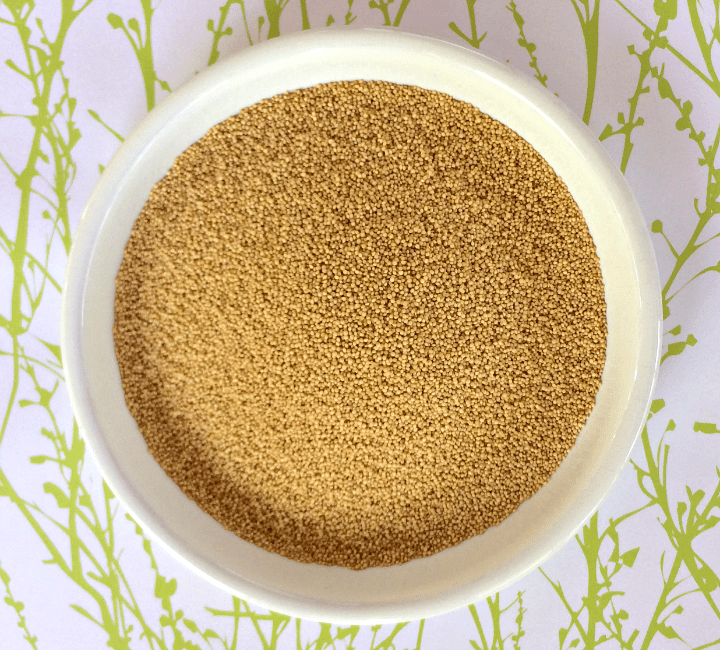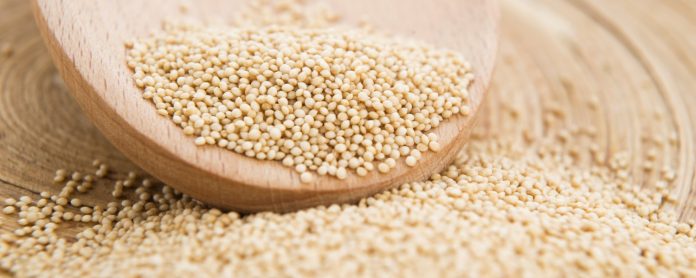Amaranth, a pseudocer, hit the news for a while and for good reasons too – it’s very nutritious. Amaranth has a very high protein content and contains lysine, an amino acid that is not found in many other grains. In addition, it is also high in fiber, magnesium, iron, phosphorus, potassium and contains a healthy amount of calcium. It is also the only grain that contains vitamin C. Read more about 7 Reasons To Indicate Amaranth is a Super food
The best part of amaranth is that it’s gluten-free, making it a great option for people with celiac disease or those who are intolerant to gluten. If this applies to you or someone you know, and you would like more information about healthy gluten-free products, click here.
Besides the raw amaranth seeds, it is also available in flour, flakes, ejection, and oil. When cooking seeds, be sure to use 6 cups of water for each cup of amaranth.
Here are the 7 main reasons why you should include amaranth in your diet.
Table of Contents
1. Lowers Cholesterol
Amaranth is an excellent choice for people with cholesterol problems. Since it is very fibrous, it has cholesterol-lowering capabilities. Cholesterol binds to the fiber in the digestive system and causes its excretion by the body. In fact, because of its ability to replenish fiber, this grain can also help prevent coronary heart disease.
2. Offers Antioxidant & Anti-Inflammatory Properties
Amaranth has both antioxidant and anti-inflammatory properties, which helps prevent a wide range of health problems.
Its antioxidant properties help prevent damage caused by free radicals, which can accelerate aging and lead to cancer and other health problems. In addition, it protects cell membranes from oxidative damage and boosts immunity.
Its anti-inflammatory properties reduce the risk of gout, celiac disease, arthritis, fibromyalgia & irritable bowel disease (IBD).
 3. Facilitates Digestion
3. Facilitates Digestion
Amaranth is high in fiber which means it stimulates the digestive system and helps regulate the excretion of toxins from the body. The reason for this is that the fiber can not be absorbed by the digestive enzymes, so it crosses the digestive tract without opposition, taking toxins, waste, fat, and cholesterol. In fact, amaranth is an excellent food to consume if you are constipated.
4. Boosts Eye Health
A regular intake of amaranth can stimulate your vision, due to its high content of vitamin A and C.
Vitamin A helps keep the surface of your eyes healthy and also helps prevent eye infections. In addition, it reduces the risk of macular degeneration and cataract. Lack of vitamin A causes drying of the cornea, resulting in blurred vision.
On the other hand, vitamin C supports the health of blood vessels in your eyes and reduces the risk of contracting cataracts.
5. Improves Bone Health
Calcium is very important for bone health – without enough calcium, the bones will become weak and supple, making them easier to break and smash.
Since Amaranth contains a good amount of calcium, it can help the body strengthen and repair the bones. By having amaranth, one can assist prevent or slow the start of osteoporosis.
6. Improves Hair Health
Amaranth has lysine, a rare amino acid that can not be produced by the body. This amino acid improves the efficiency of calcium absorption and strengthens the capillary follicles. This, in turn, helps prevent hair loss.
You also use amaranth leaves to stop premature graying by retaining the natural color of your hair.
After shampooing your hair, apply fresh juice extracted from the leaves of amaranth on your hair and your scalp. Wait 10 minutes, then rinse with plain water. Do it once or twice a week.
Also, apply the few drops of Amaranth oil combined with the few tablespoons of coconut oil to massage the scalp a few times a week. Leave it for at least 40 minutes before you rinse and shampoo your hair.
Eating amaranth for its protein content is also good for the overall health of the hair.
7. Complete Protein
Amaranth is one of the only plant sources that offer a complete protein, meaning it has an adequate proportion of all 9 essential amino acids. In fact, amaranth has more protein than any other grain, making it a super grain. The protein is vital for the growth and development of new tissues and cells, energy and metabolism functions.
It contains lysine, an amino acid that lacks in most other grains. This amino acid plays an important role in the absorption of calcium, the formation of muscle proteins and the production of hormones, enzymes, and antibodies in the body.

